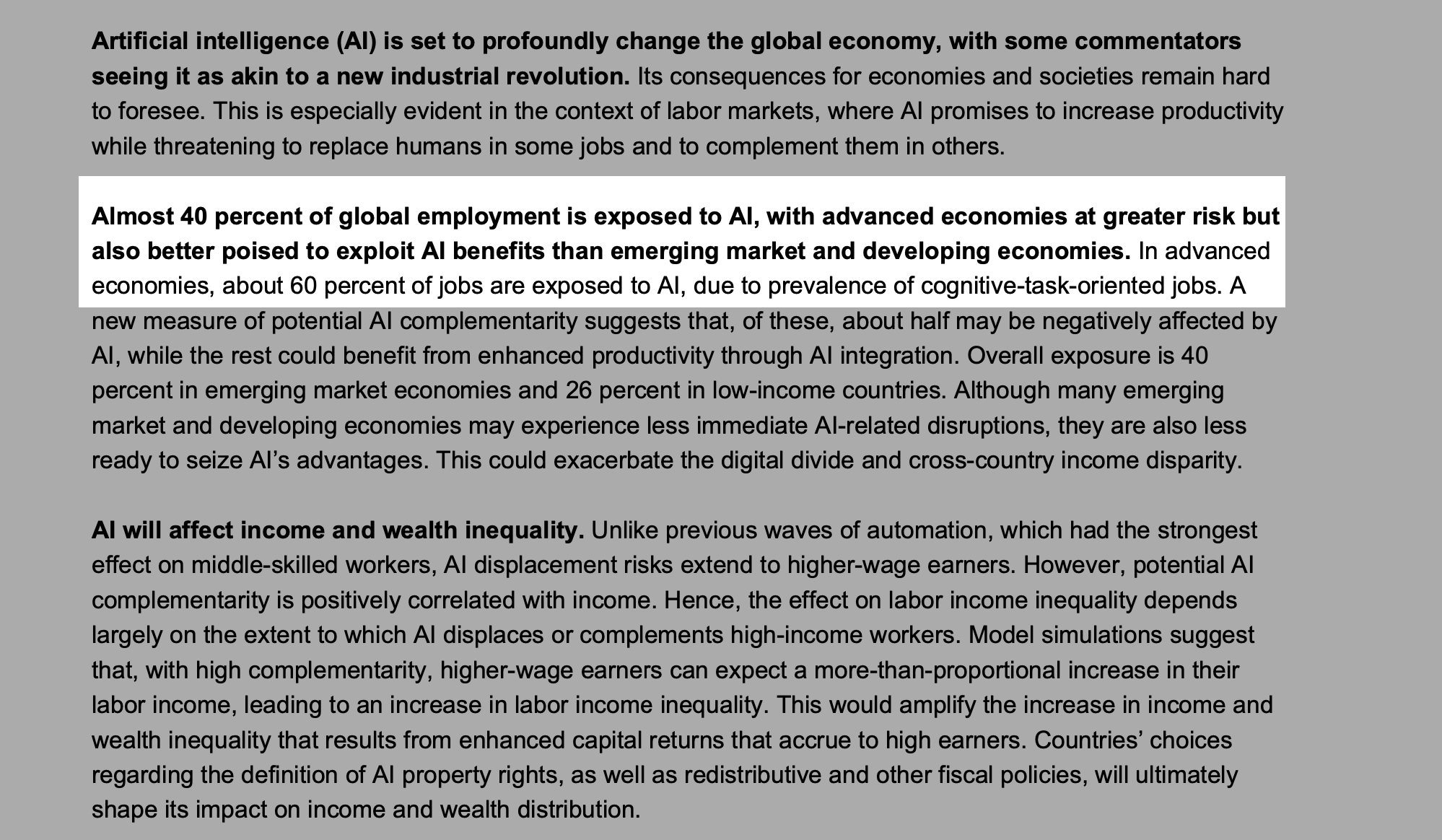The impact of AI on the job market is significant, with over 60% of companies integrating AI and related technologies. Nearly 40% of jobs worldwide are affected by AI, with potential for automation in various sectors. The AI industry’s rapid growth is reflected in substantial funding, high demand for AI skills, and the creation of new job opportunities. Regional salary variations and gender disparities in the AI workforce are notable. AI’s influence spans industries such as technology, finance, healthcare, and automotive, driving the demand for AI professionals. Despite concerns about job displacement, AI also creates new employment opportunities, with projections indicating the creation of 97 million new jobs.

Artificial Intelligence (AI) Job Market Overview
Artificial intelligence (AI) is rapidly transforming the job market, presenting both challenges and opportunities. According to the World Economic Forum’s “Future of Jobs” poll, over 60% of companies recognize the increasing popularity of AI and its impact on the job market. The IMF’s research suggests that almost 40% of jobs worldwide are affected by AI, with potential for job supplementation or replacement.
Key Statistics
- Global AI Funding: In 2022, AI investments reached $45 billion, reflecting growing confidence in AI technology across various industries.
- Top Countries for AI Investment: The United States and China lead in AI investments, offering prime locations for AI development and job opportunities.
- AI Startup Funding Growth: Funding for AI startups increased by 66% between 2021 and 2023, indicating a robust ecosystem for AI innovation.
- AI Skills Demand vs. Supply: There’s a significant gap between the high demand for AI skills and the current talent pool, emphasizing the need for education and training in AI technologies.
- Average Salary for AI Professionals: The average salary for AI professionals is $160,000, reflecting the industry’s investment in skilled workers.
- AI’s Potential for Job Automation: By 2030, AI could automate 30% of work hours in the US economy, emphasizing the shift towards strategic and creative tasks.
- Generative AI’s Impact on Business: Over 95% of executives agree that generative AI will revolutionize AI applications, extending its use to new domains like product design and customer engagement.
- AI in Key Sectors: Banking, financial services, insurance, and healthcare lead in AI adoption, offering numerous opportunities for AI-driven roles.
- Future Projections for AI Industry: The AI industry is expected to be worth $190 billion by 2030, indicating its pervasive influence across all sectors.
- Job Growth Through AI Adoption: More than 50% of businesses surveyed plan to increase job positions due to AI adoption and digital transformation efforts.
- Investment in AI Training: 50% of companies plan to invest in training departments focused on AI adoption, emphasizing the importance of upskilling the workforce to meet future demands.
Average AI Job Salaries and Changes
The average AI engineer salary in the USA ranges from $100,000 to $115,000, with potential for higher earnings based on experience and skills. Salaries for AI professionals have seen an upward trend over the past few years, reflecting the growing demand for skilled workers.
Regional Variations in AI Wages
There are significant differences in AI worker salaries across the United States, with states like Connecticut, California, South Carolina, Louisiana, and Minnesota offering the highest average wages for AI professionals.
AI Job Growth Statistics and Impact by Sector
The World Economic Forum predicts that AI will create approximately 97 million new jobs, while McKinsey suggests that advances in AI could affect about 15% of the global workforce between 2016 and 2030. However, nearly 20 million manufacturing jobs could be lost to automation by 2030.
Gender and Education Distribution in the AI Workforce
The gender disparity in the AI sector is still significant, with women representing only around 26% of workers in AI roles globally. The distribution of men and women pursuing higher education in AI-related fields varies across countries, highlighting cultural and societal influences on educational and career choices.
AI Job Market Statistics and Practical Solutions
The adoption of AI technologies spans various sectors, offering roles in technology and software services, finance and banking, healthcare, automotive, retail, and manufacturing. AI employment opportunities cater to different skill sets and interests, with remote work becoming increasingly common in the AI sector. Notable companies actively hiring for AI roles include OpenAI, DeepMind, Amazon, Google, IBM, Intel, and innovative startups like Grammarly and Dataiku.
AI is changing jobs faster than ever, creating new opportunities while making some jobs less needed. The industry is expected to be worth $190 billion by 2030, indicating its pervasive influence across all sectors. The rise of AI jobs presents a good opportunity for upskilling the workforce and leveraging AI technologies to stay competitive in the evolving job market.
For companies looking to evolve with AI, leveraging practical AI solutions can redefine work processes and offer automation opportunities across various industries.
List of Useful Links:
- AI Lab in Telegram @aiscrumbot – free consultation
- AI Jobs Statistics That Will Shock You in 2024
- GreatAIPrompts: AI Prompts, AI Tools & AI News
- Twitter – @itinaicom

























